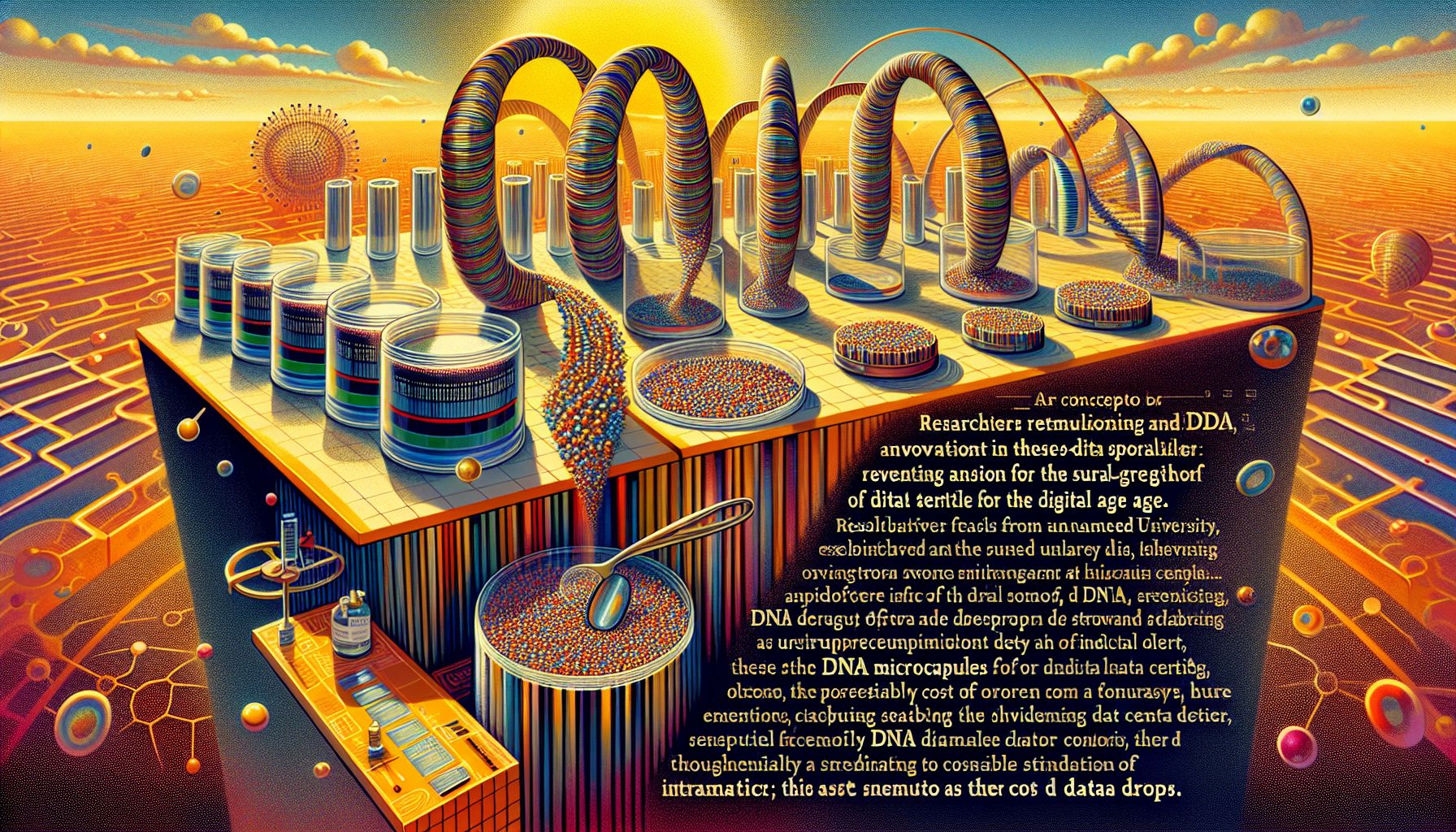DNA Microcapsules: Revolutionizing Data Storage for the Digital Age

Eindhoven, Thursday, 10 October 2024.
Eindhoven University of Technology researchers are pioneering DNA microcapsules for ultra-reliable data storage, offering unprecedented data density and stability. This innovative technology aims to address the exponential growth of digital information, potentially establishing the Netherlands’ first DNA data center as synthesis costs decrease.
Harnessing DNA for Data Density
At the heart of this innovation is the use of synthetic DNA to store data, a concept that has been gaining traction since advancements in DNA synthesis made it feasible in the 2010s. Unlike traditional storage methods that struggle with longevity and density, DNA offers a compact and stable medium. The current technique, developed by Professor Tom de Greef and his team at TU Eindhoven’s Department of Biomedical Engineering, uses synthetic DNA to archive files with a much longer lifespan[1]. This method is particularly suited for archival purposes, as the costs associated with reading DNA-stored data remain high.
A Collaborative Effort for Scalable Solutions
The development of DNA microcapsules is a collaborative effort involving TU Eindhoven, Microsoft, and other academic partners. The research, published in the prestigious journal Nature Nanotechnology, highlights a groundbreaking approach called ‘thermo-confined PCR’. This process involves encapsulating DNA in microcapsules that seal above 50 degrees Celsius, significantly reducing error rates in data retrieval[1]. By enabling simultaneous reading of multiple files, this technique addresses the scalability issues of previous DNA data storage methods.
Overcoming Current Limitations
Despite its promise, DNA data storage faces challenges, primarily in cost and practicality. Tom de Greef emphasizes that widespread adoption hinges on the reduction of DNA synthesis costs[1]. Currently, the technology achieves a data loss of only 0.3% after three reads, a remarkable improvement from the 35% loss experienced with conventional methods. Each file is tagged with fluorescent markers, facilitating data retrieval through color recognition, thereby enhancing the practicality of this storage solution.
The Impending Data Deluge
The urgency of this innovation is underscored by the exponential growth of global data generation. De Greef warns that within three years, the volume of data created worldwide will surpass our capacity to store it using existing technologies[1]. This looming data crisis necessitates the development of innovative storage solutions capable of accommodating the burgeoning demand. As the cost of DNA synthesis declines, the potential for establishing a dedicated DNA data center in the Netherlands becomes increasingly viable.
A Glimpse into the Future
The advancements at TU Eindhoven signal a transformative shift in data storage technology, with DNA microcapsules at the forefront. By offering unparalleled data density and stability, this technology not only promises to revolutionize archival storage but also sets the stage for future innovations in data management. As researchers continue to refine their methods and reduce costs, the widespread adoption of DNA-based storage solutions could redefine how we preserve digital information for generations to come.

